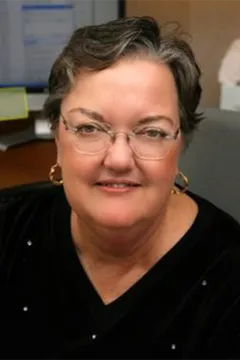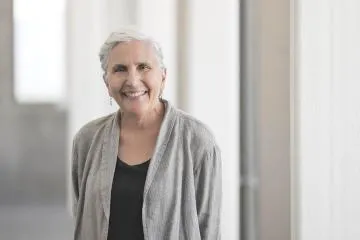College of Medicine Tucson Program to Expand, Diversify Research Workforce in Aging Studies

According to the U.S. Census, the national median age is rising, as is the diversity of the population. At the same time, there is a shortage of scientists and health care providers trained in the issues affecting older adults. For example, the U.S. Department of Health and Human Services projects the demand for geriatricians soon will exceed the supply, with the western U.S. estimated to be short 14,530 geriatricians by 2025 — and the ones who will be working then won't reflect the diversity of their patients.
In response to this workforce shortage and our nation's shifting demographics, the Center on Aging at the University of Arizona College of Medicine – Tucson developed a program to prepare undergraduate students for postgraduate education and research careers focused on improving the wellbeing of older adults in diverse groups. Funded by a National Institutes of Health grant for $1.81 million over five years, the Arizona Center on Aging/MSTEM (Medicine, Science, Technology, Engineering, Mathematics) THRIVE Program is recruiting undergraduates from disadvantaged populations, including students from rural areas and the U.S.-Mexico border region; those with disabilities; and students of Latino, Black or Native heritage.
"There are persistent health disparities with older adults, particularly in underrepresented groups, and there is a dearth of individuals from underrepresented groups in the health sciences, particularly in the research workforce," said Linda Phillips, PhD, RN, professor of medicine and nursing and senior director of research/innovation for the Arizona Center on Aging.
"There's far and away not enough people with aging knowledge and skills to recognize the unique aspects of older adults, and the research skills to make a difference," said Professor of Medicine and Co-Director of the Arizona Center on Aging Mindy Fain, MD, who counts herself as one of just a few geriatricians in the Tucson area. Dr. Fain is the co-principal investigator on the project, along with Dr. Phillips.
Fresh voices to ask new questions
THRIVE is designed to provide undergraduate students with the tools to pursue graduate degrees and research careers in aging. The program has the flexibility to adapt to each student's individual major requirements, and students will attend national conferences, complete service-learning projects and receive guidance from mentors.

"We have strong researchers who will take on a student or two. They will design research experiences and mentor them in the research process," said Dr. Phillips. "We can demonstrate ways to be a scientist, get them to identify as scientists and see themselves in a future that they never imagined."
Dr. Phillips says that getting young students interested in working with older populations is a "high mountain to climb."
"Kids, they're never going to get old! It just doesn't happen to them," she said with a smile. "Connecting young students with the knowledge about the issues in their particular community, and how they can individually make a difference for their community, can help cultivate a passion for working with and on behalf of older adults."
Drs. Phillips and Fain say infusing their field with a greater diversity of researchers will expand the types of research questions. While scientists know that certain underrepresented groups face specific health disparities, a greater variety of perspectives is needed to help researchers cover each other's blind spots.
"Researchers ask questions based upon their life experience, through the lens of their life experience," Dr. Fain said, adding that researchers who identify with the racial and ethnic majority are not as likely to see research gaps that need to be filled. "Sometimes you need somebody to alert you that you're not asking the right questions."
Diversity is also necessary to build trust with different communities. Dr. Phillips told the story of a time, years ago, that she worked with an African American student who was able to make discoveries about the relationship between discrimination and diabetes management in Black communities.
"She elicited things that I would have never been able to elicit. She saw things that I wouldn't have been able to see," Dr. Phillips recalled.
Dr. Fain says that is just one example of an individual making strides in the field, but to take the endeavor to the next level, diversity within the workforce must reach a critical mass.
"One researcher from one minority group can't tackle those issues single-handedly. It's really the village that needs to be representative," said Dr. Fain. "Knowledge spreads across all groups when you have diverse teams."
Creating expertise in aging
Dr. Fain says research in older adults is different from research in other populations, necessitating specialized training for anyone working with these communities.

"Research in older adults is different. Can they hear us over the phone? If transportation is an issue, do we go to their homes? If you've got a certain prevalence of dementia or cognitive impairment, how often do you have to readdress consent?" she said, adding that research is complicated by the likelihood that older adults have multiple health issues, making it difficult to isolate variables when attempting to study a single disease state.
Between the program's small size of only five to 10 students per year, and access to mentors, advisers and other personnel, students will have robust one-on-one contact with faculty and staff guiding them toward graduate school. Drs. Fain and Phillips expect that graduates will complete their educations with the skills and credentials they need to be highly employable in a growing field.
"We are fully confident that if they love this field, they will have a career that will be very fulfilling," Dr. Fain said.
For more details about the THRIVE program and application requirements, make an appointment with Susan Bridgewater, MS, THRIVE program coordinator, at sbridgewater@arizona.edu.
This program is supported by the National Institute of Aging, a division of the National Institutes of Health (R25AG076387). The grant funds personnel costs, education-related expenses including student stipends for some experiences, and other program-related expenses.
Contacts
Anna C. Christensen

